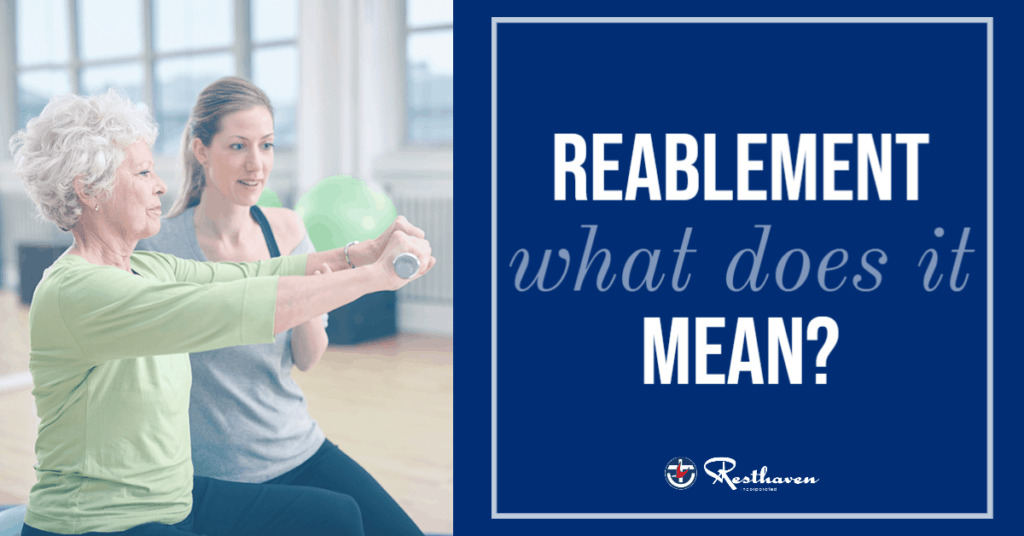
‘Reablement’ – what does it mean?
Bureaucrats love creating words. The assumption is that people will know what they mean.
The Royal Commission into Aged Care Quality and Safety is exploring solutions and models to improve the aged care sector. A suggestion is that care and support should focus on ‘wellness and reablement.’
So – what is ‘reablement’?
The Government uses the term ‘reablement’ to refer to short term or time limited support that helps a person to adapt to changed circumstances, such as functional loss after an illness or accident, or to regain confidence and capacity to return to their previous level of activity. Reablement aims to assist people to maximise their independence.
In 2019, Resthaven commissioned COTA SA’s social enterprise, The Plug In, to investigate how well older people understood the concept of ‘reablement.’
Focus group participants stated they had “never heard the term” reablement. They recommended using better understood words such as ‘enable’ or ‘re-enable’ as an alternative.
Despite the jargon, the intent of ‘reablement’ is sound. I always encourage people to seek out advice and assistance when in need of support for day to day activities due to physical or mental deterioration. Being active and proactive in continuing to engage in life when some of your capacities may not be as strong as before can enable a better quality of life.
An early step is to seek options. What action, what personal steps, can a person take in identifying support options?
It may involve discussing concerns with their doctor, reviewing day to day activity and acknowledging when daily tasks are getting a bit harder to achieve. A related step is to seek formal assistance, such as a program to restore function (eg a gym or falls and balance class) or a program to supplement daily activities.
I recently received some feedback from a lady living on her own who had lost some capacity and confidence. She reached out and asked about options. The process gave her insights she had not considered and could manage herself. Importantly, the process gave her some renewed purpose in sustaining herself at home.
I support the notion of reablement. Perhaps we should use language and concepts that are real and relevant to people, so that they can be proactive in understanding their role in maintaining their own independence and quality of life.
A free information service that offers face to face support about aged care services to support independence is Agedcare Alternatives
Phone 8408 4600 or visit agedcarealternatives.net.au
‘In my opinion’ by Richard Hearn,
Former CEO Resthaven Incorporated
